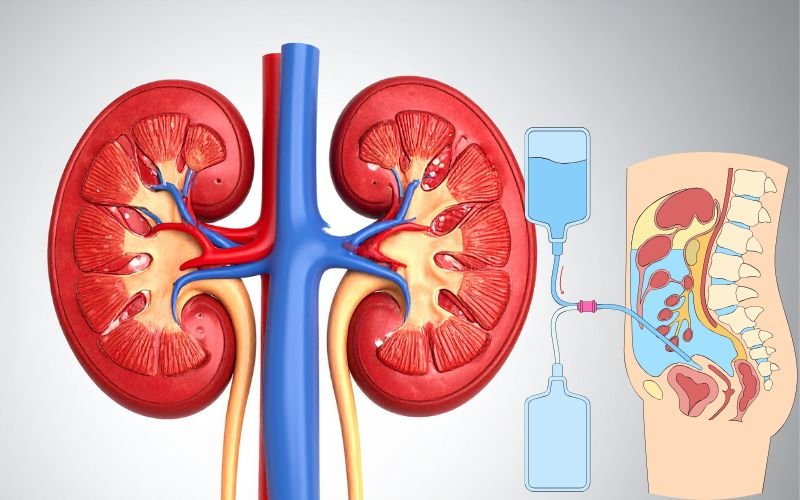Your kidneys are vital organs. They act like complex filters. They clean waste and extra fluid from your body. Each kidney has millions of tiny filters. These filters are called glomeruli. When these glomeruli get inflamed or damaged, you get glomerulonephritis. This swelling hurts the kidney’s ability to filter blood properly. Waste products build up inside the body. This build-up creates many health problems. Finding the right Kidney hospital in Delhi is the first step toward getting better. In this article we will look at its types, causes, and the best ways to treat it.
Why Does Glomerulonephritis Kidney Disease Happen?
Knowing the glomerulonephritis causes helps us treat it correctly. The disease is often an immune system problem. Your body’s defense system mistakenly attacks the kidney tissue. It is not always clear why this happens.
Infections as the Main Culprit
An infection often triggers the acute form. We call this type acute glomerulonephritis causes.
- Strep Throat: This is the most common cause. An infection by streptococcal bacteria happens first. The immune system makes antibodies to fight the bacteria. These antibodies sometimes settle in the glomeruli later. They cause inflammation and damage there.
- Other Infections: Other infections can also cause it. These include endocarditis and certain viruses like hepatitis.
Autoimmune Disorders
The immune system attacks healthy tissues in these diseases. The kidney is one target.
- Lupus: This disease causes inflammation throughout the body. It damages the kidneys often.
- Goodpasture’s Syndrome: This is a very rare disease. It attacks the lungs and the kidneys both.
- Vasculitis: This term describes inflammation of blood vessels everywhere. It harms the tiny vessels in the glomeruli.
Other Long-Term Illnesses
Some long-term health issues damage the kidneys slowly.
- Diabetes: High blood sugar hurts the glomeruli over time. It makes them thick and scarred.
- High Blood Pressure: This puts strain on the entire kidney system. It speeds up the filtering damage.
Because the causes are so varied, you need an expert. A Nephrology specialist in Delhi can find the exact cause for you.
Symptoms of Glomerulonephritis
The Symptoms of glomerulonephritis vary a lot. They depend on whether the disease is acute or chronic. Acute cases show up very suddenly and dramatically. Chronic cases are subtle and hard to notice at first.
- Swelling (Edema): Your face, hands, or feet swell up visibly. This is from extra fluid retention. Swelling around the eyes is common first thing in the morning.
- Blood in Urine: Your urine looks pink or cola-colored. This happens because the damaged filters leak red blood cells.
- Less Urine Output: You notice you are urinating much less than normal.
- High Blood Pressure: Blood pressure suddenly goes up very high.
- Fatigue: You feel extremely tired and weak all the time.
Slow, Chronic Symptoms
These signs develop over many months or years slowly.
- Foamy urine means lots of protein is leaking out.
- Swelling becomes general, not just in the face or feet.
- High blood pressure remains a problem that never goes down.
- Nocturia or needing to pee often at night is common.
- You lose your appetite and lose weight over time.
What is the Best Treatment for Acute Glomerulonephritis in Delhi?
The goal of the Treatment of acute glomerulonephritis is two-fold. First, we must control the inflammation and symptoms. Second, we must treat the underlying cause of the disease. A hospital stay is often needed for acute attacks.
If an infection is the cause, we use antibiotics. If an autoimmune disease is attacking the kidneys, doctors use strong medicines. These medicines suppress the immune system. Examples include corticosteroids or other immunosuppressive drugs. For very severe cases, plasma exchange may be needed. This process removes harmful antibodies from the blood.
Your doctor manages the symptoms carefully too.
- Blood Pressure Control: Medicines help lower high blood pressure safely. This protects the glomeruli from long-term damage
- Diuretics: These pills remove extra fluid and salt from your body. They reduce the swelling fast.
- Dietary Changes: You must limit your intake of salt and fluid. Sometimes, reducing protein and potassium is also needed. This eases the burden on the struggling kidneys
Kidney Treatment in Delhi
In some severe acute cases, kidney function drops dangerously low. Temporary dialysis may be required. Dialysis cleans the blood when your kidneys cannot do their job. This gives the filters time to rest and heal completely.
Chronic Glomerulonephritis Treatment in Delhi
Chronic glomerulonephritis treatment in delhi focuses on slowing the disease down. The aim is to prevent full kidney failure. This requires consistent effort and careful management over many years
Key elements of chronic treatment:
- Strict Blood Pressure Management: This is the most important step. ACE inhibitors or ARBs are the drugs of choice. They reduce blood pressure. They also protect the kidney filters from protein leakage.
- Controlling Proteinuria: Reducing protein in the urine protects the kidneys from scarring. The same blood pressure drugs help achieve this result.
- Dietary Monitoring: A kidney dietitian helps you plan meals. They manage your salt, fluid, potassium, and phosphorus intake very carefully
- Managing Complications: Doctors treat anemia and bone disease quickly. These are common problems with long-term kidney trouble
If chronic disease leads to end-stage kidney failure, two options remain. You will need either a kidney transplant or long-term dialysis treatment.
Glomerulonephritis is a severe illness. It requires quick and expert management. Ignoring the Symptoms of glomerulonephritis risks long-term kidney failure. The right diagnosis is truly life-saving. You must partner with experienced Renal specialist at a good Nephrology Hospital in Delhi.
At Primus Hospitals, we provide focused, superior kidney care. Our dedicated Nephrology unit uses the latest technology. We offer everything needed for your complete care. Trust our experts to help you achieve the best possible long-term kidney health.
FAQs
It depends on the type. If a clear cause like an infection is found quickly, the acute form can sometimes be cured fully. Chronic forms, however, usually can only be controlled well. The damage is often permanent.
Dialysis is a life-sustaining treatment, not a cure. It cleans your blood when your kidneys cannot. You will need it forever unless you get a successful kidney transplant.
No, certainly not everyone. Many people manage the chronic condition for many decades. They use medication and diet changes effectively. Only those reaching end-stage kidney failure need a transplant.













